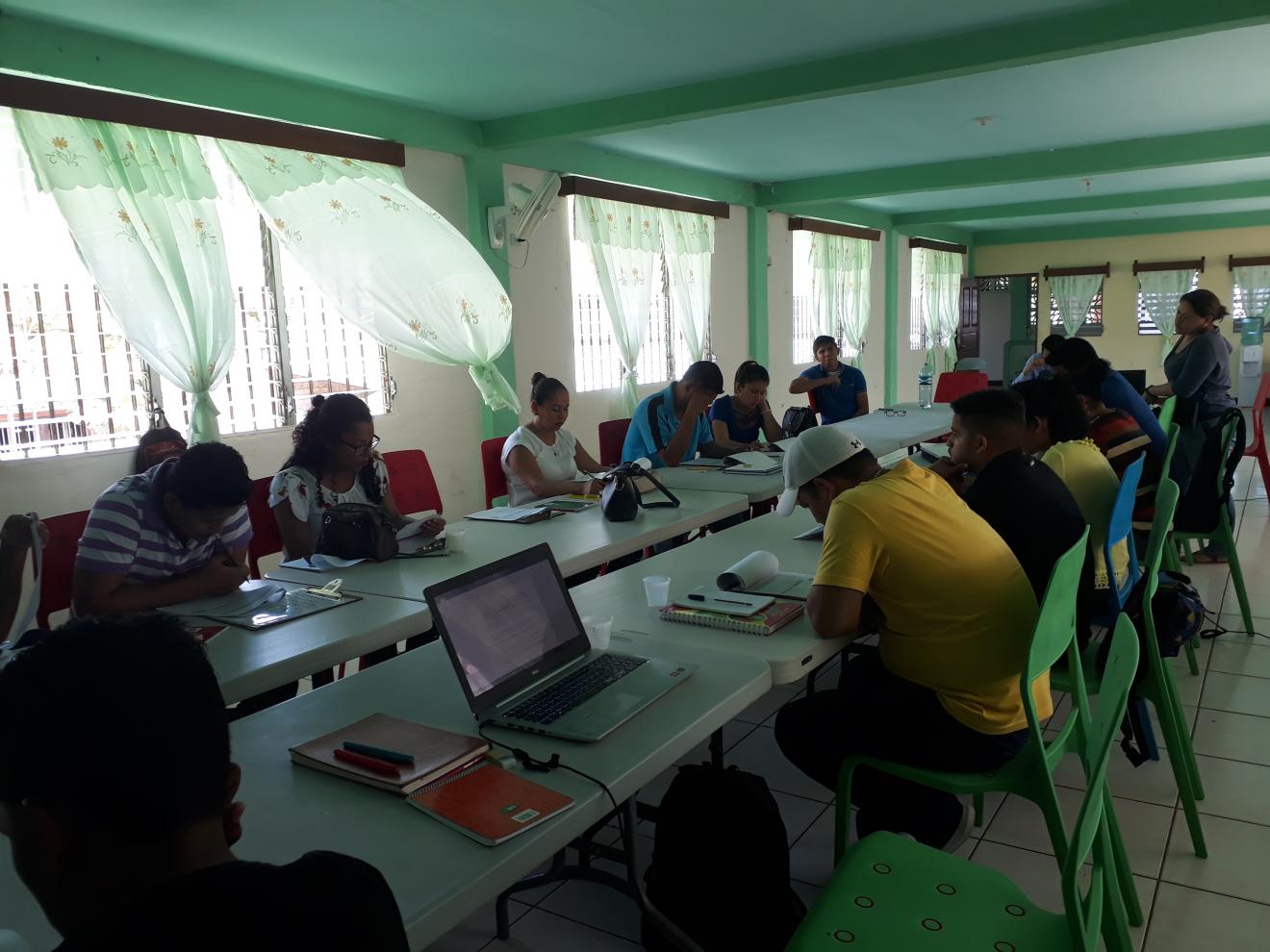
Reading comprehension in elementary school
By: Neylin Calderón
URACCAN, in its community articulation and accompaniment processes, articulates with Bluefields Indians & Caribbean University (Bicu), to develop training processes for URACCAN staff in the Early Grade Reading Assessment (EGRA) test application and survey.
This process consists of evaluating the reading capacity of early grade, that is, during the first grades of the primary, that is why it will be used as the main tool to diagnose the final situation in the basic skills of fluency and reading comprehension in a sample of students of 1st, 2nd and 3rd grade primary education in schools attended by the CARS Project in the municipalities of Prinzapolka , Waspam and Puerto Cabezas.
In this sense, it aims to share the conceptual framework on which the EGRA test is based, to know it in depth, either in sections and skills that it intends to measure each, to train applicators and supervisors in the correct use of stopwatch and the measurement of time in the EGRA test, to analyze field manuals, both for applicators and supervisors , and ensure that all participants are aware of and correctly implement the nomenclature of the test and the processes to be followed before, during and after the application of the EGRA tests, analyze special cases that may arise and measures to be taken before them, raise awareness of gender aspects and measures that the team must take in the face of cases of violence.
About the program
This process is based on the methodology of the EdData Global program of the Research Triangle Institute (RTI) International organization, who have developed and applied a test to evaluate initial learning of reading internationally in countries in Latin America, Asia, Africa and Oceania.
This test, called EGRA, was developed by literacy specialists, taking as a reference the basic competencies that students are expected to acquire in the initial grades of primary education. EGRA evaluates the following competencies: directionality and laterality of text, recognition of letters, sounds or phonemes, simple or familiar words, invented words (language decoding), reading fluency (measured by reading speed), reading comprehension, oral comprehension, and dictation.
Since URACCAN, this process is under the responsibility of the area of National and International Cooperation, Solidarity and Complementarity, coordinated by Master Keith Narváez Ismael, at the Bilwi venue.
- Log in to post comments
- 26 views
